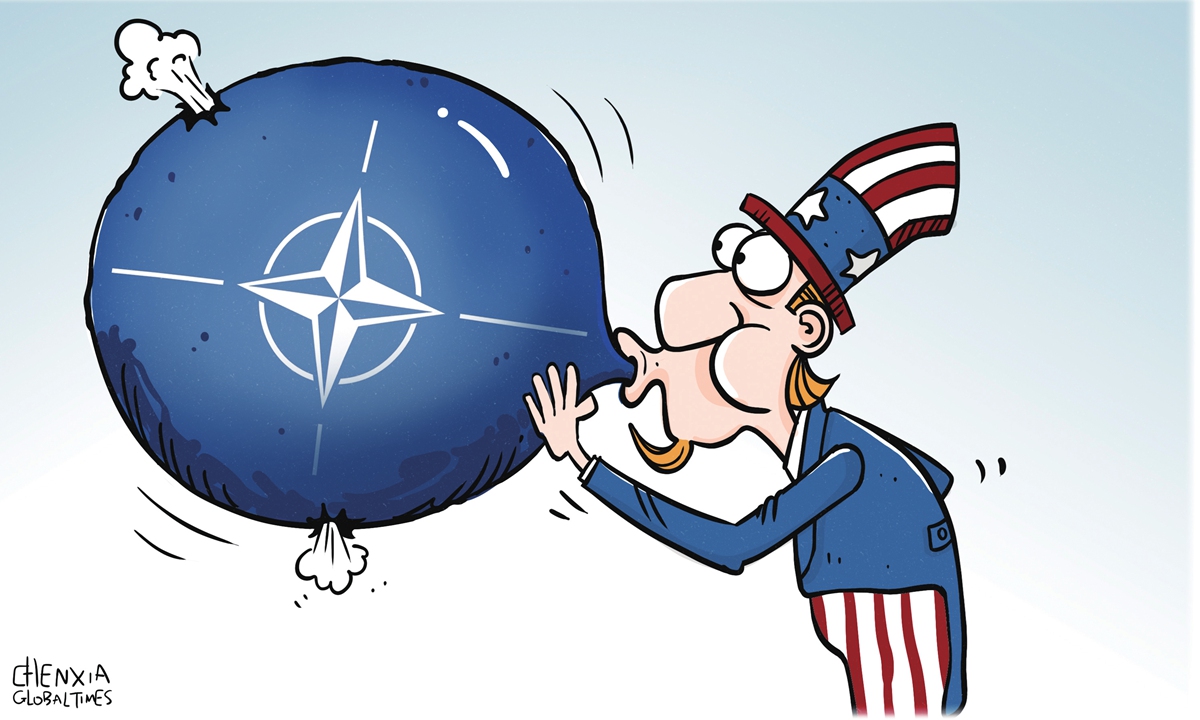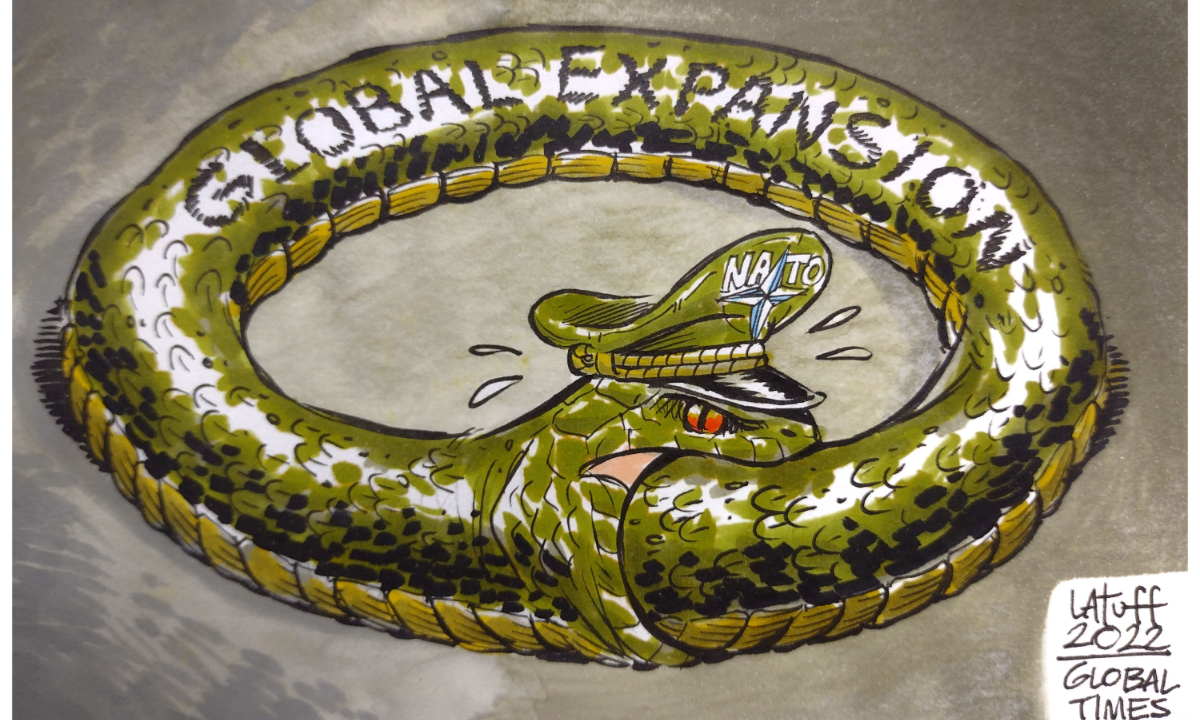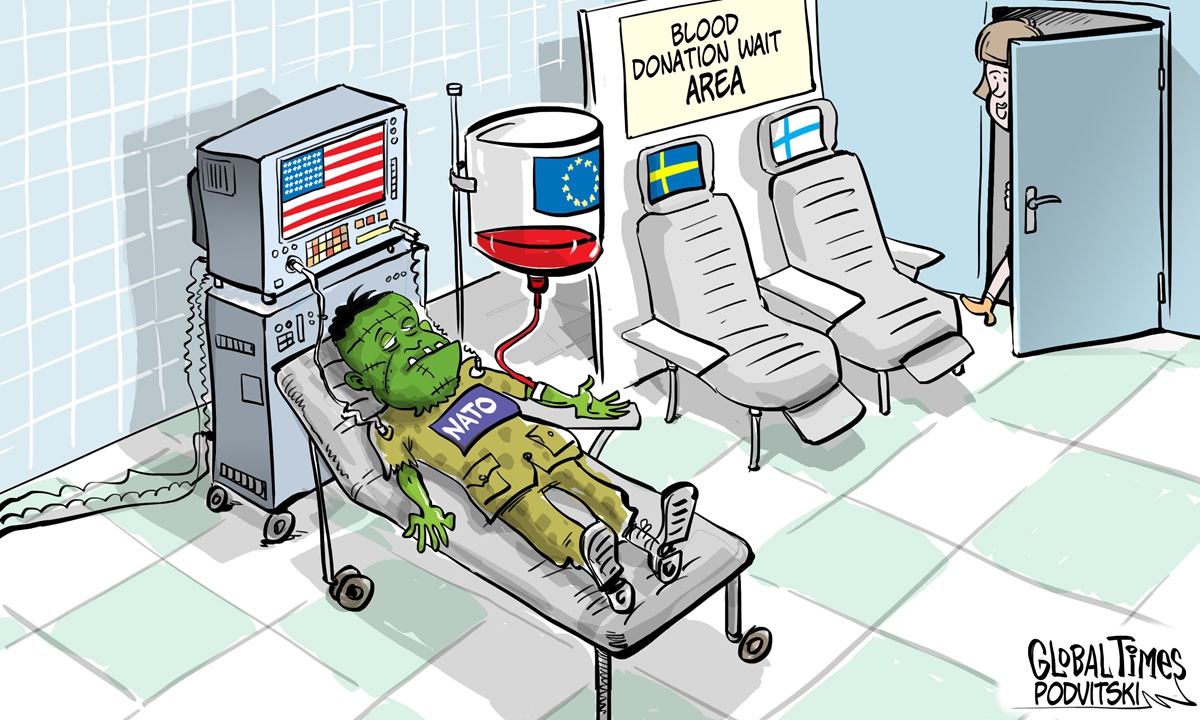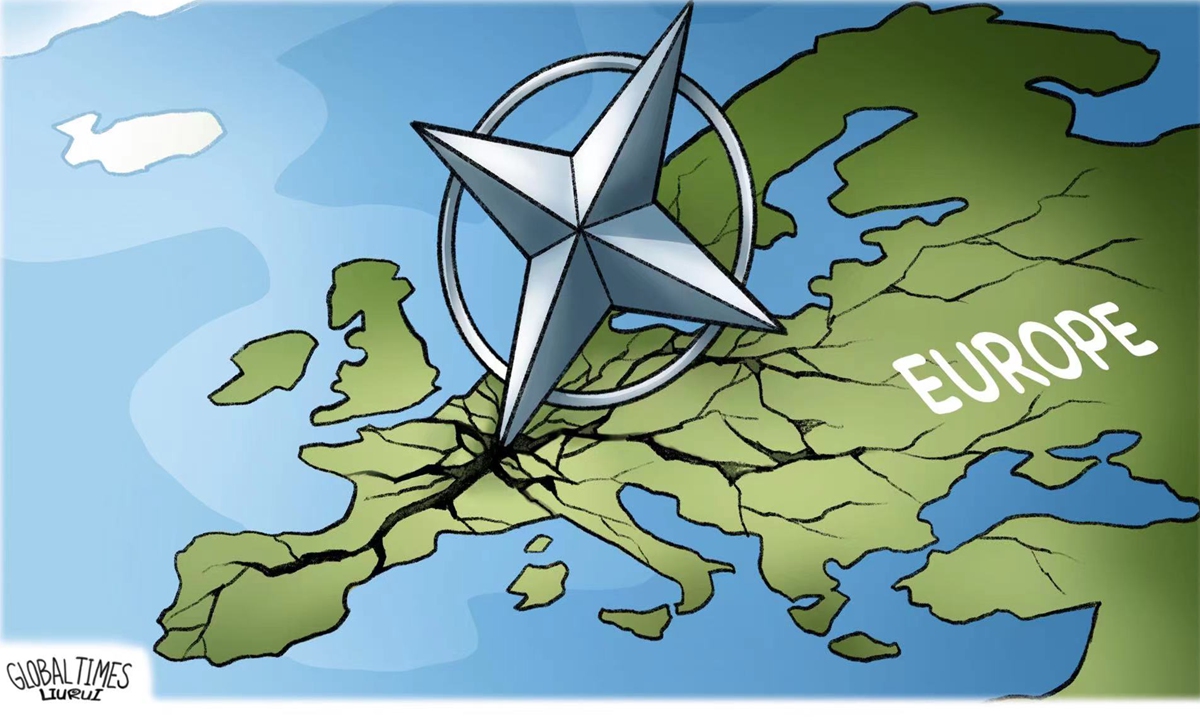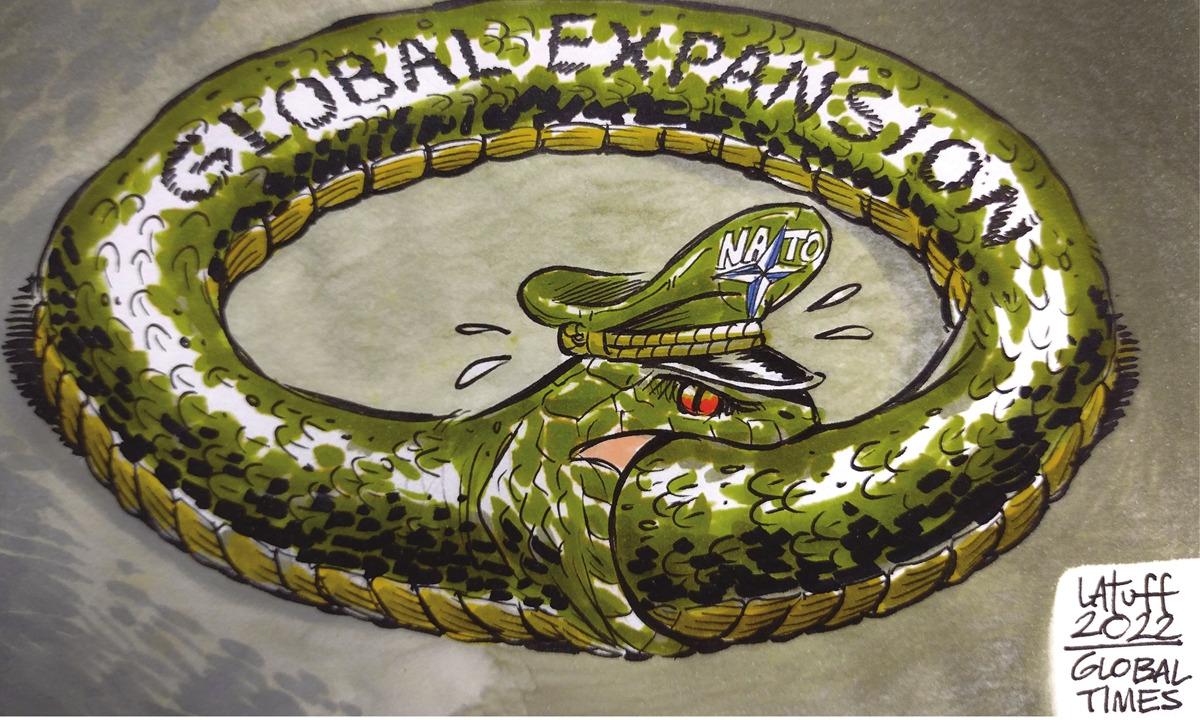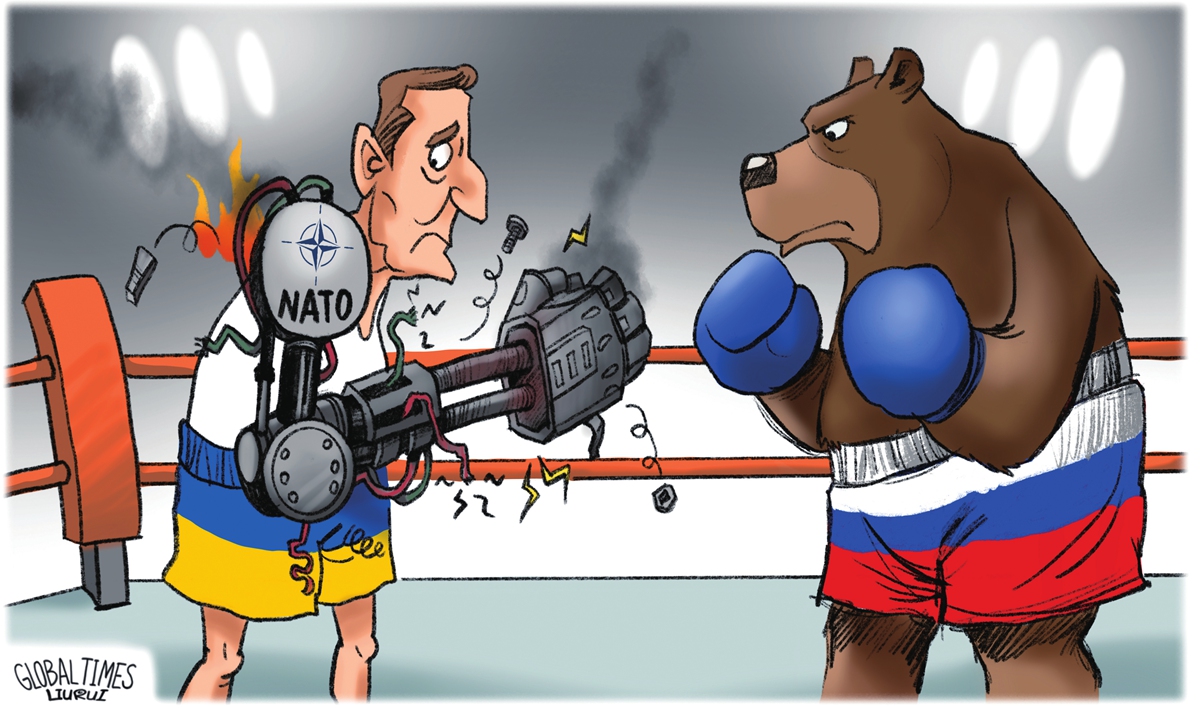US’ so-called rule-based order means international gangsterism
The United States’ so-called rule-based order is gangsterism while its sanctions on other countries are illegal, a renowned Canadian lawyer has said a recent interview. Christopher Black, a veteran Canadian lawyer who has been involved in a number of high-profile cases, including defending former Yugoslav President Slobodan Milosevic, strongly condemned actions from the U.S. and the U.S.-led North Atlantic Treaty Organization (NATO), which have repeatedly accused other countries of destroying postwar international orders, portraying themselves defenders of international order. The lawyer believes that U.S. sanctions on other countries are illegal and are a ploy to defend its economic wars against other countries.
China's challenge to the rules-based order

Main priority: A demonstration calling on the German government not to intervene in the ongoing conflict in the Ukraine, in Berlin. The moral principle that we all should live peacefully on one planet should over-ride sovereign nations fighting over power and ego from turf to space, when humanity could be burned by climate warming or nuclear war. — AFP
Schmitt was a brutally realist thinker who explored the legal foundations of European political theory. Schmitt argues that no order can function without a sovereign authority. A state is legally constituted when the politics distinguishes between friend and enemy and when the citizens are willing to fight and die for its identity. The state alone is given the power of violence (and enforcement) by the citizens to enforce the law. Schmitt is considered an authoritarian supporter, because he saw sovereign power resting ultimately in the Executive (rather than the Legislature or Judiciary) because the sovereign (i.e. the President) decides on the exceptional situation, where he/she must suspend the law because of war or assume emergency powers in order to restore order. Decisions by the Executive are either bound by law or bounded by his or her moral bearings. The world is today watching on TV whether former President Trump is morally culpable for causing the Jan 6, 2021 riots, or legally culpable. The Ukraine war is being supported by the North Atlantic Treaty Organisation or Nato on a matter of moral principle for a non-member, but if the war escalates to nuclear global destruction that kills all, how do we trade off the individual rights with the collective right of everyone else to survive? Schmitt dissected the European constitutional laws and international order, dividing them into three phases: pre-1500, 1648 to 1919 (World War I) and thereafter. Before the discovery of America, European powers fought each other under a religious cloak, since the Pope decided on disputes of rights on moral grounds. Indeed, it was the Papal Bulls of 1455 and 1493 that authorised the Portuguese and Spaniards to conquer all lands and seize and enslave Saracens and non-Christians in the Americas, Africa and Asia. The religious rationales comprised the Domination Code whereby Christians can rule over non-Christians and possess their property, as well as the Discovery Code, whereby land owned by non-believers are treated as terra nullius (empty land), meaning non-Christian indigenous peoples do not have rights. But when the Dutch and English started fighting with the Portuguese and Spaniards over overseas territories, what was the legal justification? Dutch jurist Grotius (1583-1645) provided the secular rationalisation that discovery alone is not enough, but since there was freedom in the seas, occupation by a sovereign state confirms rights seized through war. Schmitt argued that Jus Publicum Europaeum (European Public Law) emerged after the 1648 Treaty of Westphalia to allow sovereign countries to have the right to go to war based on their own judgement of justice and necessity without interference in each other’s domestic affairs. This changed after the end of the First World War, when the 1919 Treaty of Versailles treated the losing side as criminals, with their rights cancelled or confiscated. While the Europeans were busily fighting each other, the United States rose in global power and imposed its 1823 Monroe Doctrine that asserted that it has its own sphere of influence, with the right to intervene in Central and South American states. That sphere of influence would spatially cover cultural, economic, military, political and today technology exclusivity beyond legal sovereign borders. Schmitt was prescient in seeing that where war is fought on the basis of “good versus evil”, in which all rights of the other side are “cancelled” (like the foreign exchange assets of Afghanistan and Russia are frozen or seized), the situation may be an unstable equilibrium. The unstable European security architecture was settled decisively by the United States in two World Wars because of her overwhelming military, economic and industrial power. But in today’s multipolar situation, who decides on the rules of the international order? If both sides accuse the other side as evil and illegitimate, who decides other than the use of arms? To cut a complex story short, the Nato military alliance, comprising nearly one billion people and 47.3% of the world’s gross domestic product or GDP (2020) assumes its status quo role as the final arbiter of the “rules-based order”. The problem is that BRICS countries (Brazil, Russia, India, China and South Africa), plus Indonesia have 3.5 billion population with one quarter of world GDP in market terms (25.6%). However, on GDP PPP terms, they are near parity with Nato and therefore may have their own views on the international order. What if the larger non-Western countries want their own version of the Monroe Doctrine? The moral principle that we all should live peacefully on one planet should over-ride sovereign nations fighting over power and ego from turf to space, when humanity could be burned by climate warming or nuclear war. For Nomos (or order) of the Planet, rather than the Earth, we should all rationally cooperate. If we truly believe in democracy, can the eight billion people in the world vote on the rules-based order, or do we still leave it to G-7? No order is stable without true legitimacy on democratic principles. How to achieve that order remains a truly open question.Andrew Sheng writes on global issues from an Asian perspective. The views expressed here are the writer’s own.
Related posts:
Moral vacuum at the heart of modernity, now embodied in US laws!
` `
BRICS summit kicks off, calls grow for parallel payment system to counter US hegemony



























